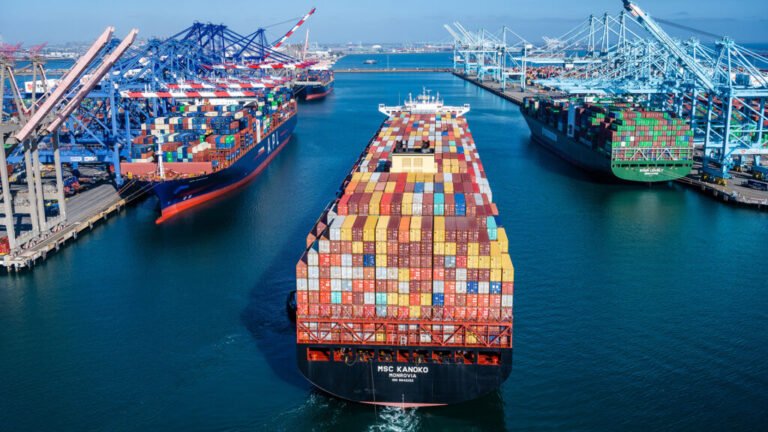US Trade Representative Plans to Introduce Fees on Chinese Ships Calling American Ports
Following earlier announcements and proposals to tackle China’s dominance in the maritime and shipbuilding sectors, the Office of the United States Trade Representative (USTR) has laid out plans to introduce fees on Chinese ships calling American ports.
Amid the U.S.-China trade war, the Trump administration is taking another shot at reviving the American maritime and shipbuilding industry while curbing China’s dominance with two-phase targeted actions revealed on April 17.
According to the USTR statement, these actions are a response to the Section 301 Investigation of China’s Targeting of the Maritime, Logistics, and Shipbuilding Sectors for Dominance, which found that “China’s acts, policies and practices are unreasonable and burden or restrict U.S. commerce”.
“These responsive actions will disincentivize the use of Chinese shipping and Chinese-built ships, thereby providing leverage on China to change its acts, policies, and practices, and send a critically needed demand signal for U.S.-built ships,” the USTR claimed.
As explained, these actions will occur in two phases over “a reasonable period of time” to allow businesses to adjust. For the first 180 days, applicable fees will be set to zero.
After the 180-day period, the first phase of actions will come into force with fees on vessel owners and operators of China based on net tonnage per U.S. voyage, increasing incrementally over the following years. The fees would start at $50/NT in 180 days and increase by $30/NT per year over the next three years.
This phase also includes fees on operators of Chinese-built ships based on net tonnage or containers, increasing incrementally over the following years, with the fee starting at $18/NT or $120 per container in 180 days, and increasing by $5/NT per year, or the same proportional yearly amount per container (e.g., in year 2, to $154 per container), over the next three years.
The actions entail incentivizing U.S.-built car carrier vessels, with fees on foreign-built car carrier vessels based on their capacity, whereby the fee would start at $150 per car equivalent unit (CEU) capacity of the entering non-U.S.-built vessel in 180 days.
The second phase actions, which will not begin for three years, will include limited restrictions on transporting LNG via foreign vessels with an aim to incentivize U.S.-built LNG vessels. These restrictions will increase incrementally over 22 years, the USTR noted.
Industry Backlash Yields Results?
While the Trump administration moves ahead to deliver on its promise and impose tariffs on Chinese ships, the actions put forward are less strict than the initially proposed measures to charge up to $1.5 million fees for Chinese-built vessels entering U.S. ports.
To remind, the initial proposal faced backlash from the industry, raising concerns that such tariffs could exacerbate inflation for U.S. consumers as well as businesses, jeopardize jobs and ‘disproportionately’ harm United States-based farmers and other exporters.
The new actions will see fees on Chinese vessel operators and owners and Chinese-built ships be assessed per U.S. voyage, not per port call. These fees are to be imposed on a given ship no more than five times per year.
Furthermore, fees will not be “stacked,” meaning only one fee will be assessed per U.S. voyage, the USTR elaborated.
Furthermore, upon proof of order of a U.S.-built vessel, fees or restrictions on an equivalent non-U.S.-built vessel are suspended for up to three years.
As understood, the fees on Chinese-built ships exempt Great Lakes or Caribbean shipping, shipping to and from U.S. territories, or bulk commodity exports on ships that arrive in the United States empty.
“Ships and shipping are vital to American economic security and the free flow of commerce,” said Jamieson Greer, the United States Trade Representative . “The Trump administration’s actions will begin to reverse Chinese dominance, address threats to the U.S. supply chain, and send a demand signal for U.S.-built ships.”
The latest announcement comes shortly after Donald Trump’s executive order to “restore American maritime dominance”.
On April 9, the U.S. President signed “a historic Executive Order”, mandating the creation of a Maritime Action Plan (MAP) that is expected to provide a strategy with specific actions to restore and create sustained resiliency for the American maritime industry.

